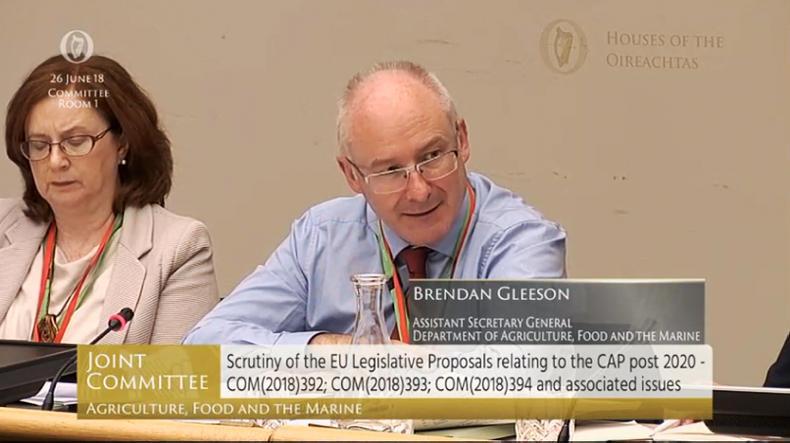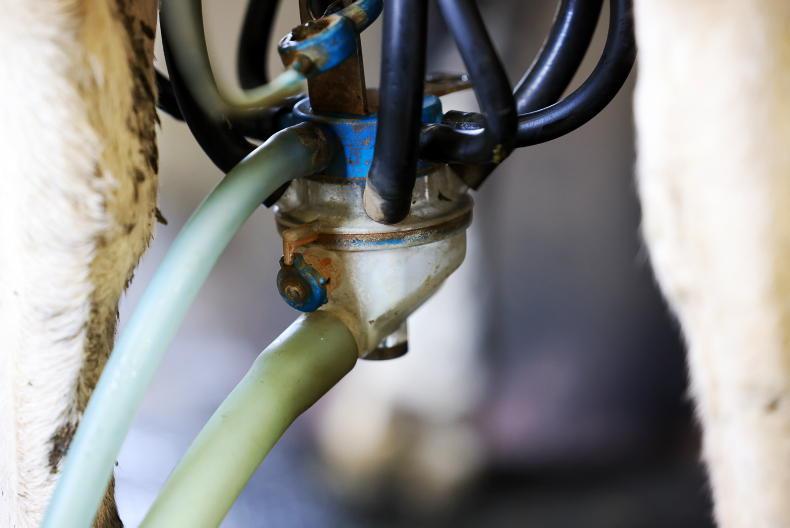European Commission guidelines on defining a “genuine farmer” have been described as impossible by the Department of Agriculture.
The new guidelines to define a “genuine farmer” include conditions such as income tests, labour inputs on farms and excludes people “whose principal business activity is not agricultural”.
“Certainly from the point of view of running a practical payment system, it would be immensely burdensome, impossible I think, to check those kind of things,” Brendan Gleeson, assistant secretary general at the Department of Agriculture, told an Oireachtas Committee on Tuesday.
Confusion also remains within the Department as to how to define a “genuine” Irish farmer.
Citing the recent CAP consultation meetings across Ireland, Gleeson stated that “everyone was able to say what wasn’t a genuine farmer, but no one was able to say what was”.
Fears remain among part-time farmers that their payments could be cut due to their off-farm employment, but Minister for Agriculture Michael Creed told the Irish Farmers Journal that his Department wants to make sure “that everyone who currently qualifies for a payment remains qualified in the CAP post-2020”.
The Department also told the Oireachtas that the Commission’s proposal to limit payments was currently “not a practical proposition”, as it allowed for the deduction of salaries and unpaid labour from the direct payments figure.
“It completely undermines the proposal if you have to deduct salaries, if, in theory, I was on €60,000 and I paid myself a salary of €60,000 well then there’s no cap,” Gleeson said, adding that it could potentially hold-up the delivery of farm payments.
The overall CAP budget is facing cuts of up to 5%, however 18 member states, including Ireland, have indicated that they are willing to fill the funding shortfall that will be left by Brexit.
The Netherlands, Denmark and Sweden remain uncommitted and Gleeson pointed to the “tough” timeline to deliver and gain approval for CAP proposals before the EU elections in May 2019.
Read more
BDGP, GLAS and National Reserve drive farmers' appeals
Over 100 agricultural appeals submitted
European Commission guidelines on defining a “genuine farmer” have been described as impossible by the Department of Agriculture.
The new guidelines to define a “genuine farmer” include conditions such as income tests, labour inputs on farms and excludes people “whose principal business activity is not agricultural”.
“Certainly from the point of view of running a practical payment system, it would be immensely burdensome, impossible I think, to check those kind of things,” Brendan Gleeson, assistant secretary general at the Department of Agriculture, told an Oireachtas Committee on Tuesday.
Confusion also remains within the Department as to how to define a “genuine” Irish farmer.
Citing the recent CAP consultation meetings across Ireland, Gleeson stated that “everyone was able to say what wasn’t a genuine farmer, but no one was able to say what was”.
Fears remain among part-time farmers that their payments could be cut due to their off-farm employment, but Minister for Agriculture Michael Creed told the Irish Farmers Journal that his Department wants to make sure “that everyone who currently qualifies for a payment remains qualified in the CAP post-2020”.
The Department also told the Oireachtas that the Commission’s proposal to limit payments was currently “not a practical proposition”, as it allowed for the deduction of salaries and unpaid labour from the direct payments figure.
“It completely undermines the proposal if you have to deduct salaries, if, in theory, I was on €60,000 and I paid myself a salary of €60,000 well then there’s no cap,” Gleeson said, adding that it could potentially hold-up the delivery of farm payments.
The overall CAP budget is facing cuts of up to 5%, however 18 member states, including Ireland, have indicated that they are willing to fill the funding shortfall that will be left by Brexit.
The Netherlands, Denmark and Sweden remain uncommitted and Gleeson pointed to the “tough” timeline to deliver and gain approval for CAP proposals before the EU elections in May 2019.
Read more
BDGP, GLAS and National Reserve drive farmers' appeals
Over 100 agricultural appeals submitted









SHARING OPTIONS